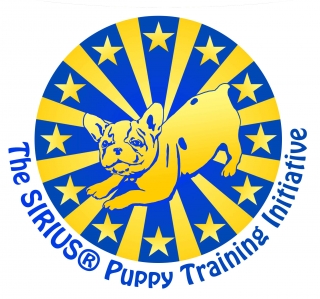Trainers

Imagine … if people consulted dog trainers before getting a puppy or immediately after acquiring one. The world would certainly be a much better place for dogs and their human companions. Trainers have the know how to prevent the development of behavior temperament and training problems but they don’t have the early access to puppy owners like breeders, veterinarians and pet store personnel. Instead, many puppy owners wait until their puppy has problems before searching for a trainer. Many puppies even develop problems well before they attend puppy class necessitating that much class time is rehabilitative. Sadly though, some owners wait until the dog is six months to two years old before consulting a trainer and by then, most problems are much more time consuming, difficult and sometimes dangerous to resolve.
Even so, most dog trainers are extremely Internet-savvy. I think that you can make this Puppy Raising Initiative work for you by: 1. Downloading the two free eBooks — BEFORE You Get Your Puppy and AFTER You Get Your Puppy and customizing them with your own Business name and contact information; 2. Emailing the two eBooks along with the link to the Puppy Raising Initiative for Owners to all of their clients, urging them to forward the email to all of their doggy friends and neighbors; and 3. Emailing the eBooks along with the link to the Puppy Raising Initiative for Dog Professionals to every other dog professional — breeders, veterinarians, pet stores and shelters — and to all local paper, radio and television media in your database. If you don’t have databases as yet, start compiling them now. Promotion is the key. Dog trainers need to promote like they have never promoted before.
Give talks at monthly Breed/Kennel Club and Veterinary Medical Association meetings and at veterinary clinics (during lunchtime). Impress upon breeders that nurture (socialization and training) is essential for a puppy to fully express its own nature (genes). Accentuate the ease of setting up an errorless housetrainig and chewtoy-training autoshaping system and the importance of safe socialization to people in the kennel before eight weeks of age. Impress upon veterinary practitioners the urgency for an in-the-home consultation to check that long-term and short-tem confinement and home-alone preparation programs are up and running. Explain that you teach puppy classes off-leash so that puppies learn bite inhibition and continue socializing with people, so that they will be safe and easy to handle and examine as adults, i.e., that the dogs feel comfortable around people and have no desire to bite, but if ever they reacted when grabbed, manhandled, or provoked, their jaws would cause no damage. Additionally organize free Q&A sessions, mini lectures and video nights for the general public in pet stores, shelters and humane societies.
Bombard conventional media with story and program concepts. Go to the paper media offices and to local radio and television stations with a trained puppy or dog. Media acceptance only works if you keep trying and it is facilitated if you have sponsorship money and so, contact all the large businesses in your area to sponsor your educational program. It never hurts to ask. Many business owners have dogs and many business owners are aware that advertising gets more attention when animals are involved. Dogs have helped sell millions of Tacos in the US and millions of rolls of toilet paper in the UK. It’s time that we help dogs promote themselves and their right for an education and quality of life. The media could make it all work in a heartbeat and so, keep trying.
Additionally, think digital media — dog blogs, eNewsletters, YouTube and social media. Relentlessly spread the word. Owners need to learn how quickly it’s possible to ruin a puppy by simply doing nothing (neglecting socialization and teaching household rules and basic manners). And owners need to discover how much fun it is to raise and train a puppy. Dog training has had a lot of bad press in the media and many owners think that training is a chore and that the dog is our adversary and needs to be physically manhandled and punished. We must all do our best to change people’s perspective about training — the dog’s our best friend and doggy education and companionship are enjoyable and rewarding.
Once you have access to puppies, don’t let all this promotion go to waste. Teach classes off-leash so that you can be on the alert for early warning signs of likely problems. If puppies don’t play with and play-bite people and other puppies, they cannot develop bite inhibition and their jaws will likely cause damage if they react to manhandling or provocation as adults. Approaching slowly when called, running away, being hard to catch, ducking the head when reached for and struggling when held are all signs that the relationship is starting to deteriorate. Particular be on the alert for owners that are becoming frustrated and have resorting to grabbing and manhandling. Nip these problems in the bud with oodles of classical conditioning and basic manners.
Remember that you are holding puppy classes: #1. To teach puppies bite inhibition; #2. To continue socializing puppies with people; and #3. To teach owners how to control their puppies when off-leash and distracted. Dog-dog socialization is essential for teaching bite inhibition and puppy play “sells” puppy classes to owners.
For more info please read, "What Makes A Good Puppy Class?" by Dr. Ian Dunbar.
Benefits for Trainers
Pretty obvious, I would think; dog trainers can’t train puppies unless the owners bring their puppies for training. Trainers need to promote to breeders, veterinarians, pet stores, shelters and the media like they have never promoted before, so that the dog professions work together and make this Initiative work. As trainers, you get the “big picture”; you work with breeders’ dogs, your hear what veterinarians and pet store owners advise owners and you are fully aware of owners’ problems and shelter problems. Reach out to all the other dog professions because we want to get on with the business of training puppies and dogs, rather than having to resolve common, predictable and preventable problems. The pay off is enormous — not only more clients but also, much more joy and much less heartbreak.




